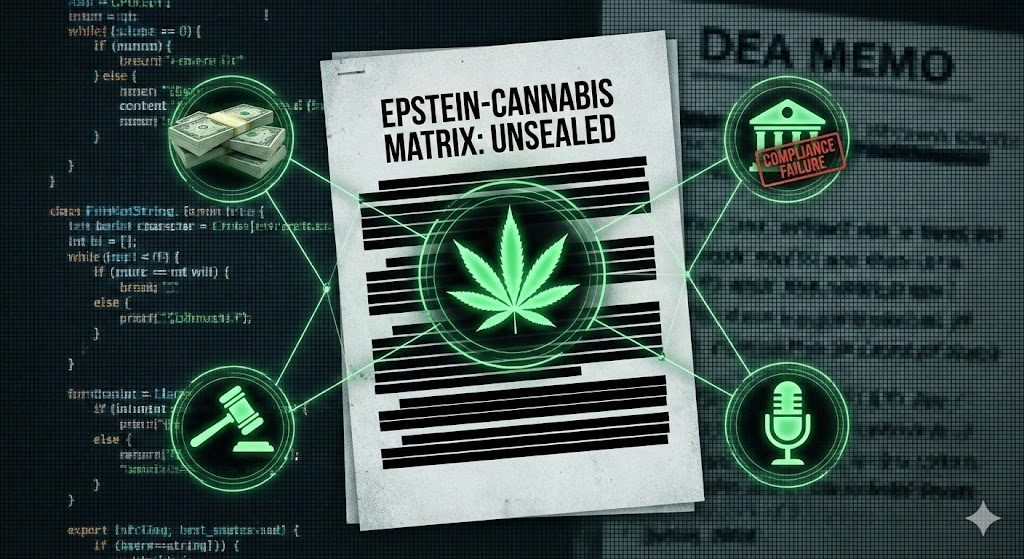
The Smell of Burnt Cannabis Alone No Longer Justifies a Police Search of a Vehicle: Illinois Supreme Court Ruling Explained
In a significant legal development, the Illinois Supreme Court ruled on September 19th, 2024, that the smell of burnt cannabis alone no longer constitutes probable cause for police officers to search a vehicle. This ruling reverses a long-standing precedent from before cannabis legalization. It also aligns with Illinois’ evolving stance on cannabis, following its legalization for recreational use in 2020. The decision marks a shift in how law enforcement may handle traffic stops and reinforces the legal protections of drivers in the state. In Illinois, cannabis smell alone does not warrant search of vehicle. This marks a critical point in adapting law enforcement practices to legalization.
Background: Cannabis Legalization in Illinois
Since Illinois legalized recreational cannabis in 2020, there have been ongoing debates about how law enforcement can adapt to this new legal landscape. Prior to legalization, the odor of cannabis—whether fresh or burnt—was often sufficient reason for police to search a vehicle, as cannabis possession was illegal. However, with the substance now legal for adults over the age of 21, questions about how police can interact with citizens when they smell cannabis became crucial. The Illinois Supreme Court addressed this head-on, reinforcing that in Illinois, Cannabis smell alone does not warrant search of vehicle, bringing much-needed clarity to drivers’ rights.
The Case That Sparked the Ruling
The ruling stems from the 2020 traffic stop of Ryan Redmond. Redmond was pulled over for a minor traffic violation on Interstate 80 near the Quad Cities. State Trooper Hayden Combs claimed to have smelled a strong odor of burnt cannabis coming from Redmond’s vehicle. This smell prompted the officer to search the car. The officer then found one gram of cannabis inside a plastic bag in the center console. Redmond denied smoking in the car and showed no signs of impairment. However, the officer cited Redmond’s evasive answers, failure to produce his license or registration, and the fact that he was traveling along a “known drug corridor” between Des Moines and Chicago as further justification for the search.
Despite these claims, the Illinois Supreme Court ruled 6-0 that the smell of burnt cannabis alone did not justify a warrantless search. The court held that without other suspicious circumstances, such as visible evidence of cannabis or signs of impairment, the search violated Redmond’s Fourth Amendment rights. This ruling affirmed that in Illinois, cannabis smell alone does not warrant search of vehicle. If there is a smell also accompanied by additional evidence of illegal activity, a search may still be legal.
Legal Reversal of Pre-Legalization Rulings
This decision represents a reversal of the 1985 case People v. Stout. The Illinois Supreme Court ruled that the smell of cannabis alone was sufficient to establish probable cause for a search. At the time, cannabis was illegal. Police officers were not required to present additional corroborating evidence. However, cannabis is now legal in Illinois. Now, the court has acknowledged the legal changes. The court stated: “The laws on cannabis have changed in such a drastic way as to render the smell of burnt cannabis, standing alone, insufficient to provide probable cause for a police officer to search a vehicle without a warrant.”
Defense attorney James Mertes, who represented Redmond, called the ruling a victory for constitutional protections against unreasonable searches. Mertes noted that “the odor of cannabis is now an aroma of legality.” This marks a significant shift in how cannabis is viewed under the law.
The Court’s Decision: A Shift in Probable Cause
The Illinois Supreme Court’s ruling draws on broader principles of protecting citizens’ Fourth Amendment rights. These rights guard against unreasonable searches and seizures. While the odor of cannabis may still play a role in assessing probable cause, it must now be combined with other factors that suggest illegal activity. For example, signs of impairment, failure to stop when prompted, or cannabis in plain view could still justify a search. However, as the ruling now stands, in Illinois cannabis smell alone does not warrant search of vehicle unless additional evidence suggests a crime.
The court also compared the regulation of cannabis to that of alcohol. Possession and use of cannabis are generally legal under certain conditions. However, it remains illegal to drive under the influence or transport cannabis in an improper manner. This is just as it is with alcohol.
Implications for Law Enforcement
The ruling has raised concerns among law enforcement officials about the potential impact on their ability to enforce laws related to drug trafficking and impaired driving. Kenny Winslow, executive director of the Illinois Chiefs of Police Association, highlighted several challenges that the ruling could pose. He questioned whether police dogs, trained to detect the smell of cannabis, will still be effective in identifying other drugs. For example, cocaine or fentanyl. Winslow also has concerns about what could happen if a minor is in possession of cannabis. Also, what if a driver is suspected of being impaired?
Despite these concerns, the court emphasized that the smell of cannabis could still be considered part of the overall circumstances in determining whether a search is warranted. However, it can no longer be the sole factor. The ruling also complicates the future of policing strategies and tools. For example, drug-sniffing dogs in cases where cannabis is present.
The Illinois appellate prosecutor’s office argued that the smell of burnt cannabis can still be evidence of improperly transporting cannabis, such as not using a sealed, odor-proof container. They also pointed out that it remains illegal to drive while impaired by cannabis. Despite these concerns, the court’s ruling clarifies that in Illinois cannabis smell alone does not warrant search of vehicle. This is sure to set new standards for police conduct.
Other States Follow Suit
Illinois is not alone in this legal shift. Several other states, including Kansas, Massachusetts, Minnesota, and Pennsylvania, have also ruled that the smell of burnt cannabis alone does not justify a warrantless search of a vehicle. This reflects a broader trend as more states move toward cannabis legalization. Despite these rulings, the smell of cannabis may still contribute to probable cause in conjunction with other factors. However, it can no longer serve as the sole reason for a search.
Conclusion
The Illinois Supreme Court’s ruling in People v. Redmond is a landmark decision in the context of cannabis legalization and criminal justice reform. It highlights the evolving relationship between law enforcement and cannabis laws. It also serves as a reminder that legal rights must evolve in tandem with societal changes. For Illinois drivers, the ruling provides an additional layer of protection. It ensures that the simple odor of cannabis does not automatically invite a search of their vehicle without other justifiable reasons. The precedent set—that cannabis smell alone does not warrant search of vehicle—is crucial for shaping future law enforcement practices in the state, forcing law enforcement to adapt to the legal status of cannabis.






